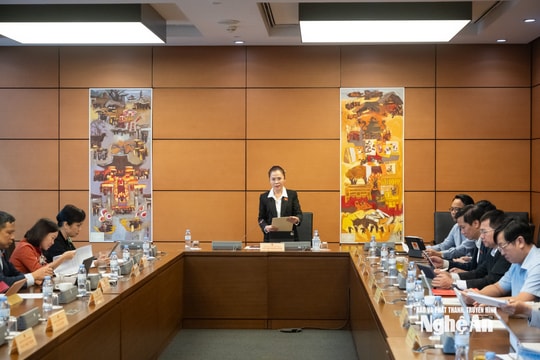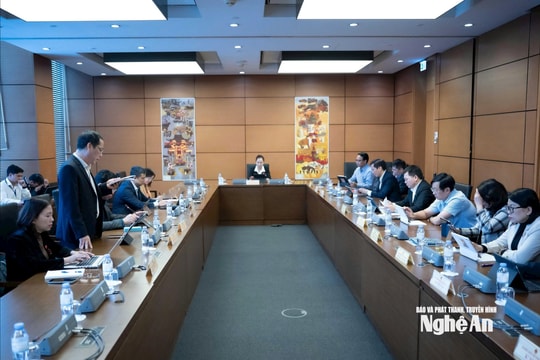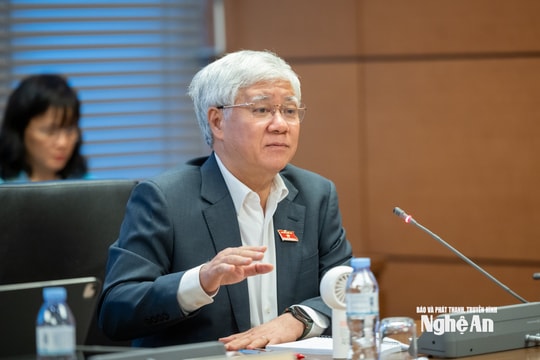National Assembly delegates from Nghe An discussed in groups about 3 draft laws.
On the morning of November 6, continuing the 10th Session, the 15th National Assembly discussed in groups three draft laws: Construction (amended); amending and supplementing a number of articles of the Law on Geology and Minerals; amending and supplementing a number of articles of laws in the fields of agriculture and environment.
.jpg)
It is necessary to clearly stipulate the time allowed for mineral exploitation in emergency situations.
Mr. Tran Nhat Minh - full-time National Assembly delegate of Nghe An delegation had specific opinions on the draft Law amending and supplementing a number of articles of the Law on Geology and Minerals.
According to him, the draft Law's addition of regulations on the exploitation, recovery and use of Group 3 and Group 4 minerals in emergency situations such as natural disasters, epidemics or national security and defense is reasonable and necessary. This regulation helps to promptly meet urgent needs.
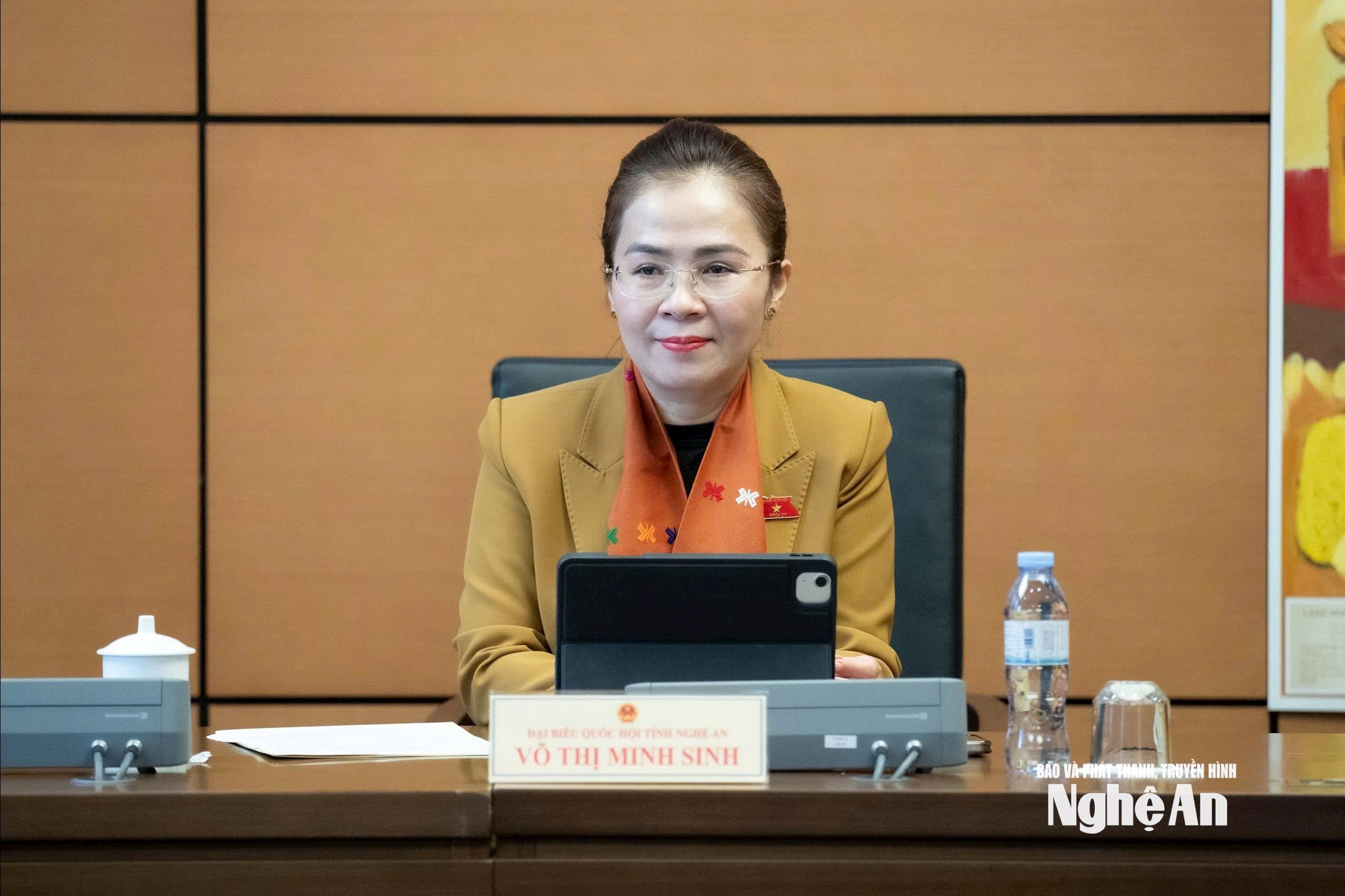
However, the delegate of Nghe An delegation proposed adding a clear deadline for emergency exploitation, to avoid taking advantage of long-term exploitation for the wrong purpose.
He proposed that the emergency exploitation right would end as soon as the emergency situation was resolved, after which the enterprise would have to carry out licensing procedures according to legal regulations.
In addition, the delegate of Nghe An delegation requested the drafting agency to study and amend and supplement the transitional provisions of the Law on Geology and Minerals in 2024.
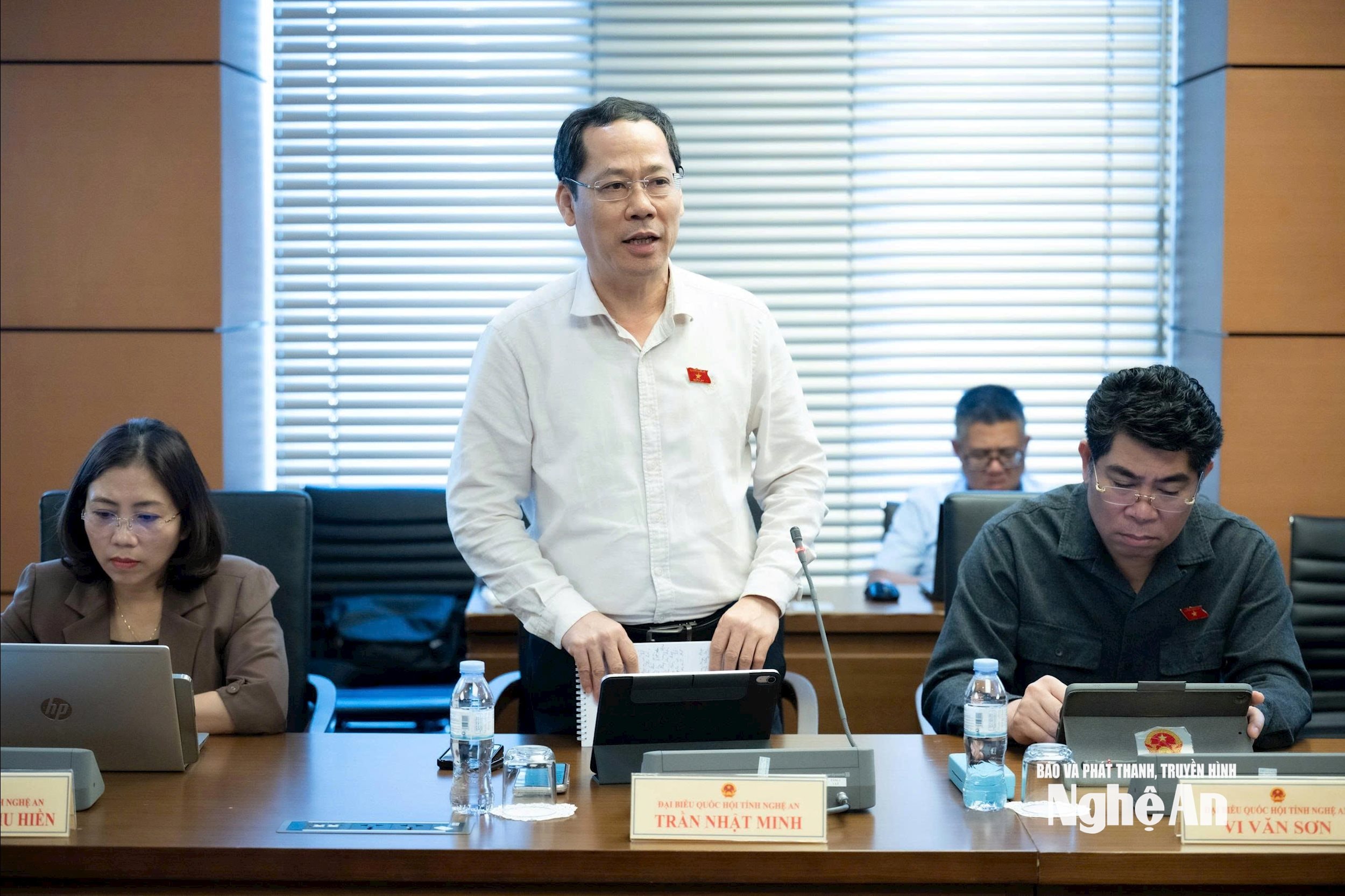
Comprehensive mechanisms should be considered to attract private investment in urban wastewater and domestic solid waste treatment.
Discussing the draft Law on amending and supplementing a number of articles of laws in the fields of agriculture and environment,Hoang Minh Hieu - Standing member of the National Assembly's Committee on Law and Justice, delegate of Nghe An delegation, assessed that the method of making laws by first supervising and amending the laws is very suitable.
He cited the National Assembly's organization of environmental protection supervision, then amendment of the Law on Environmental Protection in 2020. Many recommendations from the supervision report were accepted in this amendment, showing that supervision work is closely linked with law-making.
The delegate from Nghe An suggested that the National Assembly continue to promote this method in the next term, possibly assigning the Committees to organize supervision first and then amend related laws to ensure more accuracy and suitability.
However, Mr. Hoang Minh Hieu also acknowledged that, through comparison, some monitoring recommendations have not been institutionalized and have not been accepted in the process of amending the Law on Environmental Protection; of which there are 3 contents that need attention.
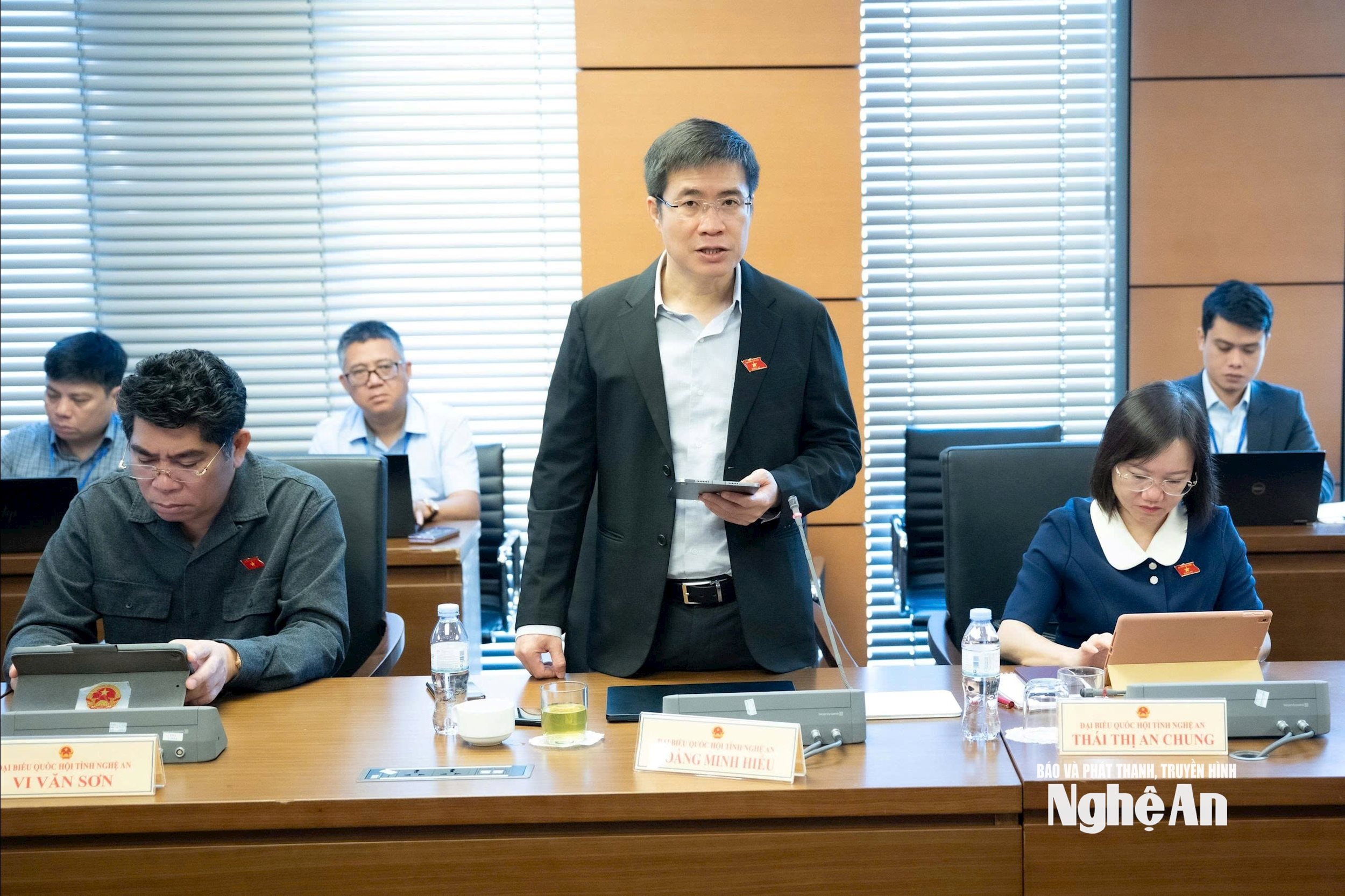
The first point relates to the scope of environmental licensing. According to the Law on Environmental Protection 2020, environmental licenses are only granted to establishments engaged in production, business and service activities.
The National Assembly’s monitoring report stated that this scope does not cover entities with high emission risks, such as public hospitals or construction projects, which can cause significant pollution but have not been regulated in the law, thereby proposing to remove the phrase “having production, business and service activities” to expand the scope of application. However, this draft law has not yet accepted the proposal.
Therefore, delegates requested the drafting agency to clearly explain the reasons and consider adding appropriate regulations to avoid legal gaps, ensure strict management of potential emission sources and improve the effectiveness of environmental protection work.
The second point is related to the roadmap for classifying domestic solid waste. The monitoring report at the conference hall shows that the implementation of waste classification at source still has many shortcomings and obstacles, especially in localities.
The Ministry of Natural Resources and Environment's guidance documents were also issued late, with a detailed circular not being issued until March 2025. Meanwhile, the Law on Environmental Protection stipulates that implementation must be completed before December 31, 2024. Therefore, if this deadline is maintained, it is necessary to fully prepare the conditions for implementation.
However, the draft law has not yet adjusted the provisions on the implementation roadmap, although the submission emphasized that this is an urgent task. Delegates requested the drafting agency to consider, clearly explain the reasons and supplement solutions, to ensure feasibility and effectiveness in managing domestic solid waste at the source.
The third issue relates to the financial mechanism and investment attraction for urban wastewater and solid waste treatment. The monitoring report points out low service prices, ineffective reinvestment of environmental protection fees, and the lack of a legal framework for public-private partnerships. The draft law does not currently propose solutions. Delegates suggested considering a comprehensive mechanism to attract private investment while improving the effectiveness of environmental management and protection.
In addition to the above three contents, the delegate of Nghe An delegation also emphasized the issue of wastewater treatment service prices. Currently, the price of clean water is not high, but the actual cost for households to have water for direct use, having to invest in a domestic filtration system and periodically replace it, is quite large. Meanwhile, the cost paid to water treatment plants only accounts for 15 - 30% of the price of clean water, too low to attract investment.
Therefore, he said that it is necessary to consider a suitable mechanism, possibly calculating a direct payment structure for the treatment plant, instead of letting each household invest in its own filtration system, to ensure that domestic water meets usage standards. The delegate suggested that the drafting agency consider and accept the monitoring recommendations and, if possible, include them in the amendment of the Law on Environmental Protection 2020 in this period, to address existing problems and improve environmental protection efficiency.
"Pre-control to post-control" must be linked with a monitoring mechanism.
Regarding the draft Law on Construction (amended), through studying the documents and the review report, Major General Tran Duc Thuan - Deputy Chairman of the National Assembly's Committee on National Defense, Security and Foreign Affairs, delegate of Nghe An delegation, commented: The scope and approach of the draft Law are designed in the direction of "framework law, principle law", assigning the Government to specify many contents in detail.
This approach has the advantage of being in line with new policies and flexible, but also carries the risk of overlapping and dispersing authority among levels and sectors.
In the context that we are perfecting the two-level local government model, if the scope and responsibilities are not clearly defined, especially in the fields of licensing, appraisal and construction safety inspection, legal gaps will easily arise and it will be difficult to control construction quality.
Therefore, delegates suggested that the Government and the drafting agency clarify the principles of decentralization and delegation of power associated with resource allocation, responsibility and power control mechanisms, avoiding the situation of "decentralization without decentralization of power".
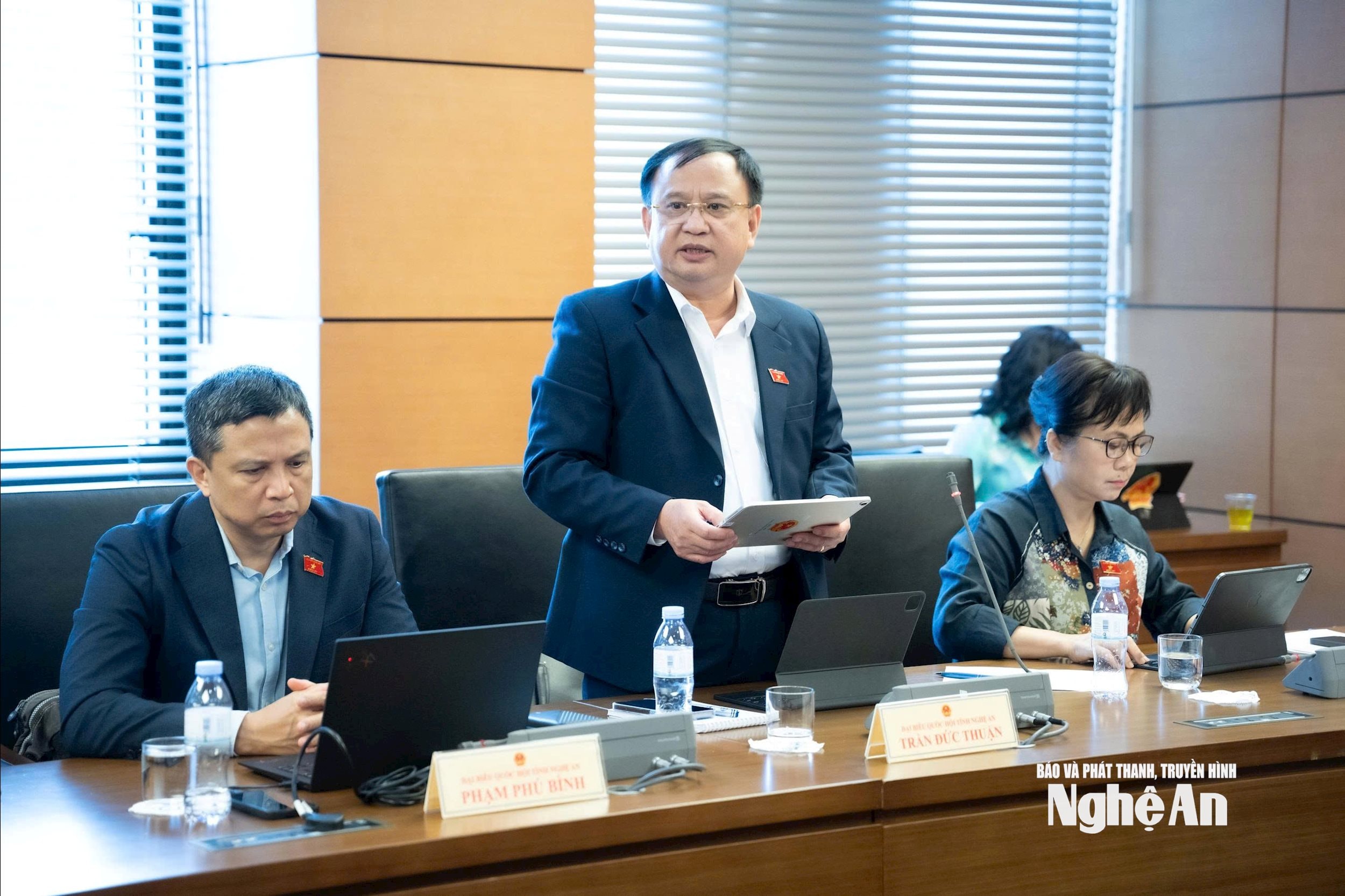
In addition, the delegate of Nghe An delegation also proposed to clearly define the Construction Law as the original law, which needs to be unified with specialized laws such as Investment, Bidding, Housing, Urban and Rural Planning, Land, Management, Law on Management, Protection of National Defense Works and Military Zones.
The draft needs to supplement the principles of ensuring national security and sovereignty, and the consultation mechanism between the Ministry of National Defense and the Ministry of Public Security for projects that directly affect national defense. In addition, it is necessary to study regulations on the requisition of civil works in wartime situations to serve the task of protecting the Fatherland.
In addition, the delegate of Nghe An delegation also said that the policy of strongly shifting from "pre-inspection to post-inspection" is correct, but if it is not accompanied by a strict monitoring and sanctioning mechanism, it can easily lead to lax management, causing negativity in licensing, acceptance, and final settlement of works; therefore, the draft Law needs to clearly demonstrate the accountability and power control mechanism of licensing agencies and appraisal agencies when this is an area with high risk of group interests.

